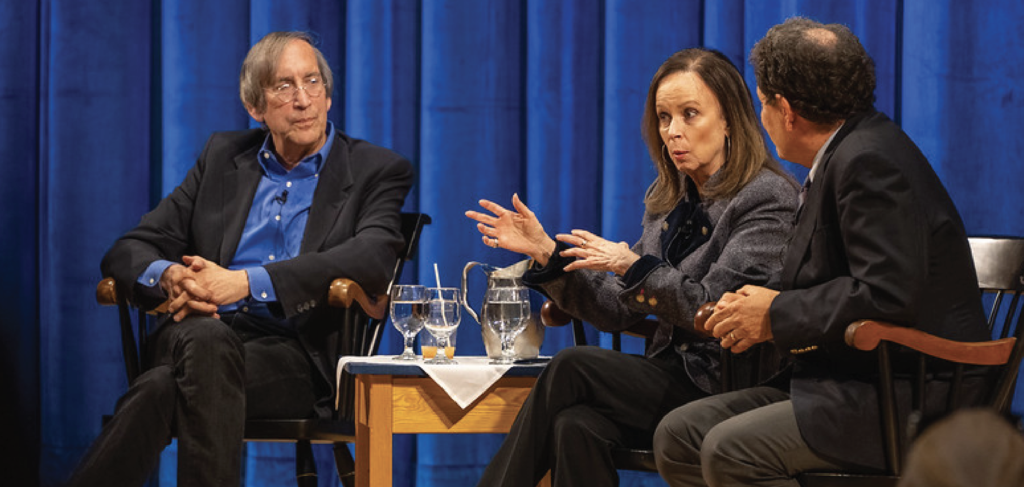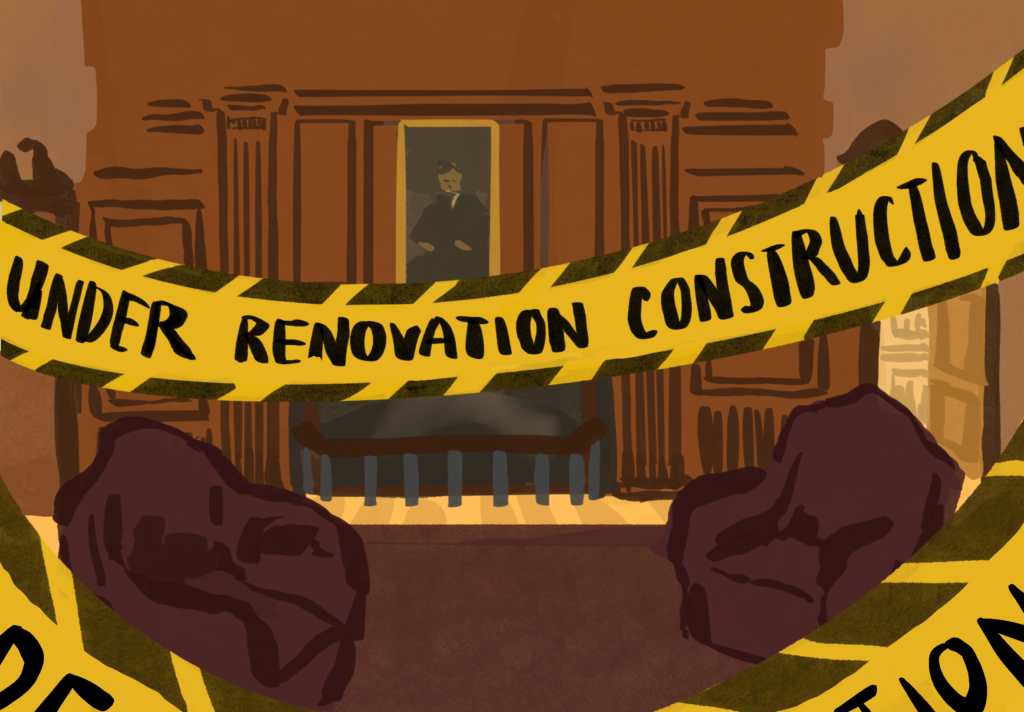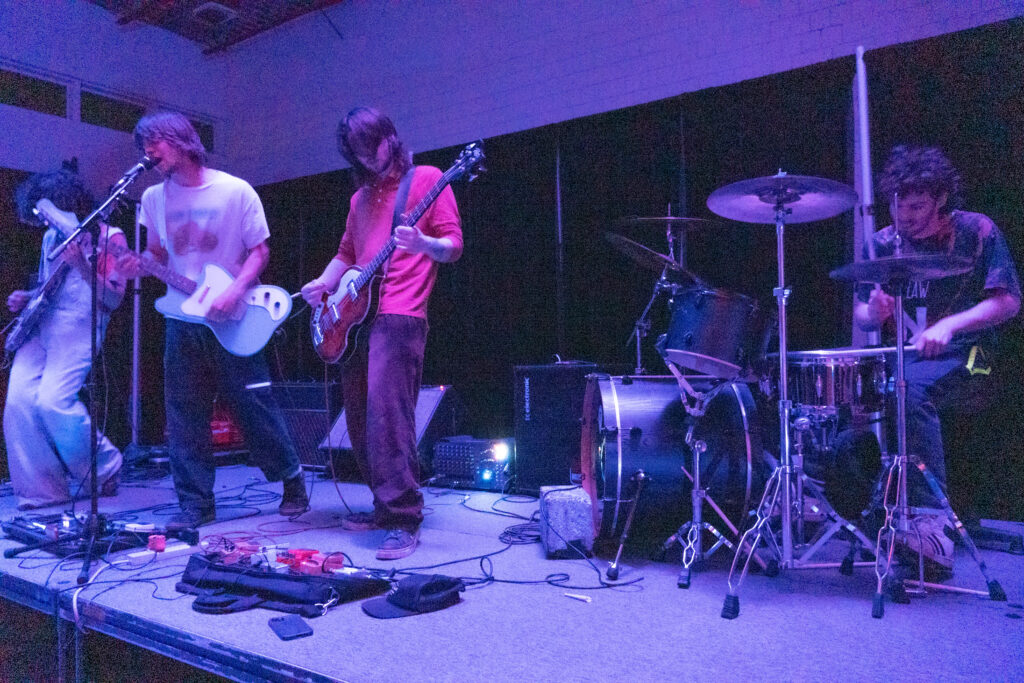
Photo courtesy of Choate Flickr
By Eliana Li ’26
nity gathered in Colony Hall for a panelist conversation entitled “Global Peacekeeping, Politics, and Civil Discourse.” Op-ed columnist for The New York Times Mr. Nicholas Kristof, foreign affairs analyst for The New Yorker Ms. Robin Wright, and analyst of Middle Eastern affairs Mr. Aaron David Miller, accompanied by Humanities teacher and Third-form Dean Mr. Jonas Akins, took the stage as they shared their experiences in journalism and diplomacy as well as their thoughts on conflicts in the Middle East.
Throughout the conversation, the panelists offered valuable lessons and advice to the Choate community. Ms. Wright emphasized the importance of consulting different viewpoints beyond the American perspective when covering international affairs. She pulled from her personal experiences covering stories across the world: “All my life I’ve gone to the other side. Only once have I been with American troops, and that was when I went to Afghanistan because that was the only way to get in and out of [Afghanistan at] the time for me. But I always made this point to make sure I understand what I’m seeing [and] that I’m listening to everyone,” Ms. Wright said. “In most conflicts, there are not just two sides, there are many sides, and when you educate yourself, there’s nothing that beats experience.”
Similarly, Mr. Kristof urged the community to detach themselves from their inherent confirmation biases and see the world not as they want it to be but as it really is. “As human beings, we’re looking for information that will confirm our biases, and we have to be aware of that and resist that. That comes with trying to reach out to people who take a very different point of view,” Mr. Kristof explained.
As an aspiring journalist, Lauren Kee ’24 resonated with their messages and recognized that good journalism requires empathy and an open mind. “I think it’s very important to leave my biases at the door and approach every story that I’m covering with an open mind,” Kee said. “I think my identities and my experiences have certainly informed my reporting. But I hope that it informs it in a way that gives me more empathy and more openness towards different viewpoints rather than clouding my judgment.”
Mr. Miller reflected on the importance of balancing the “we” and “me” to spark change. He encouraged listeners to “commit to a cause larger than themselves,” while remaining true to their own values and passions. Expanding upon that, Mr. Miller also stressed the importance of combining passion with expertise in any career path. “Passion without expertise can be dangerous, and expertise without passion can be unbelievably boring,” he said.
Additionally, Ms. Wright explained that in order to fix the world, you first have to understand it. This, she claimed, could be achieved through gaining knowledge and understanding of different languages. “You have to learn two languages. One can be Latin-based, and one needs to be a culture that is so different — Chinese, Japanese, Russian, Urdu, or Arabic — because that allows you to cross that threshold of culture of knowledge,” she said. Ms. Wright’s advice stuck with Ava McClatchie ’24: “Especially at Choate, where we have the opportunity and resources to study second and third languages, I think it is extremely important for this message to be emphasized,” she said.
Following the panel, some students opted to join the panelists for breakout sessions to ask more questions and engage with them in a smaller setting. Xiu Lim ’25, who attended Mr. Kristof’s breakout session, said, “What I appreciated the most was the fact that he didn’t talk down upon students, and he never shied away from some of the more controversial questions,” Lim said. “He also always had an anecdote for every question and I felt like that was really helpful.”
Director of Studies and English teacher Mrs. Ellen Devine, who also participated in Mr. Kristof’s session, added, “I was impressed by the dynamic and the thoughtful discussion students had with Mr. Kristof. Everyone was deeply engaged, thoughtful, and reflective. It was a great discussion to be a part of.”
The wisdom shared by Mr. Kristof, Ms. Wright, and Mr. Miller gave the community insight into how to navigate the world with an open mind, an eagerness to hear all perspectives, and a commitment to something larger than yourself. “My hope is that the panelists modeled civil discourse for our community and that we might draw some inspiration from their example to practice it in our own lives,” Mr. Akins said.



